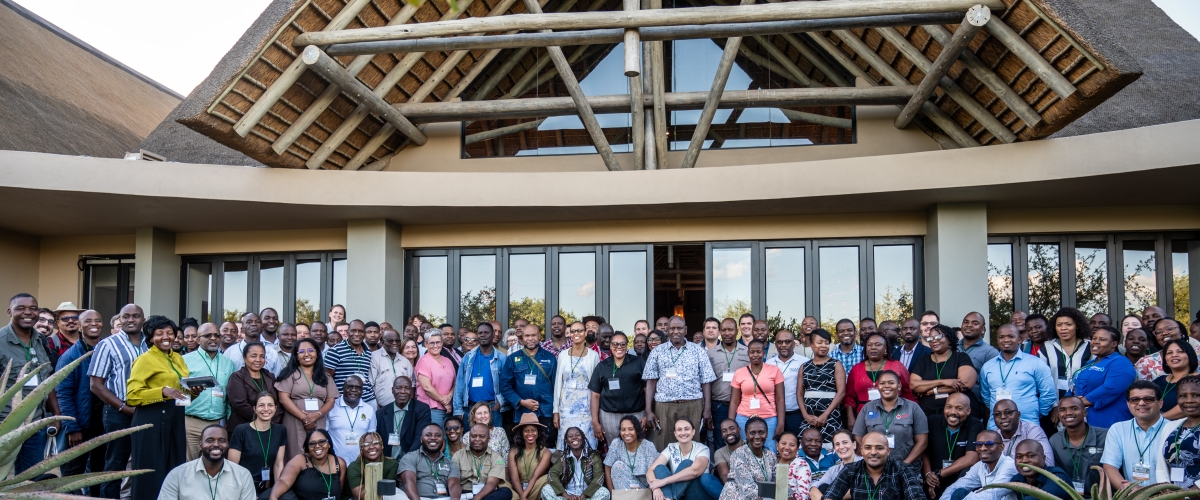
From January 27 to 31, 2025, CCARDESA participated in the Herding for Health (H4H) Indaba under the theme “Accelerating Rangeland Restoration and Community Prosperity in Africa” at the Radisson Safari Hotel in Hoedspruit, South Africa. Conservation International and the Peace Parks Foundation explain H4H as “a community-driven livestock management model that supports the livelihoods of rural communities living in and around protected areas — while restoring rangelands and conserving biodiversity through herding, capacity building and collective governance”. The annual gathering served as a key knowledge-sharing platform, bringing together stakeholders from various H4H sites, including implementation teams, researchers, private sector representatives, and development partners. The event fostered collaboration, innovation, and the exchange of best practices in implementing the H4H model.
The 2025 H4H Indaba was jointly hosted by Conservation International (CI), Peace Parks Foundation (PPF), Meat Naturally (MN), AUDA-NEPAD’s AFR100, CI’s Moore Center for Science, and GIZ. Implementers from seven H4H countries—Zimbabwe, Zambia, South Africa, Botswana, Madagascar, Mozambique, and Kenya—came together to share insights and progress on H4H implementation.
CCARDESA was represented by Mrs. Bridget Kakuwa-Kasongamulilo (ICKM Officer) and Ms. Kopo Letsebe (ICT Support Officer), who engaged in discussions on rangeland restoration, sustainable livestock management, and community-led natural resource governance.
During the official opening remarks, Mr. Barney Kgope from the South African Department of Forestry Fisheries and Environment speakers emphasized the importance of holistic natural resource management in addressing social and economic challenges. He stated that, "Social and economic challenges are not linear and, therefore, require holistic natural resource management."
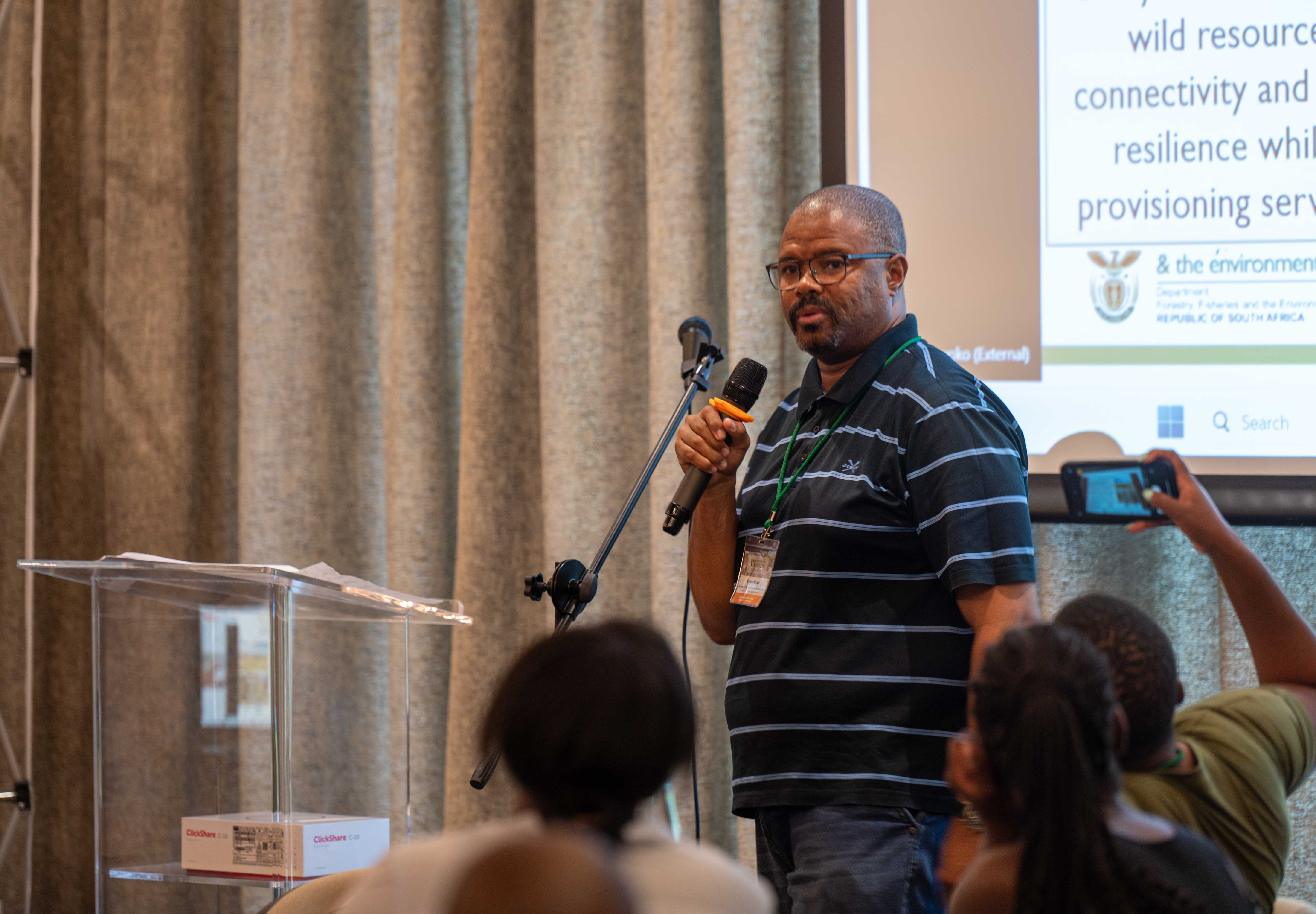
Mr. Martin Leineweber, Project Manager IKI Growing Greener: Restoration and sustainable management of agropastoral systems in open arid landscapes across Southern from GIZ, highlighted the necessity of community-led implementation and achieving planned outcomes through the right approaches, while Phillipa David-Phillips Peace Parks Project Coordinator: Herding for Health (H44) stressed the need for climate adaptation and mitigation in response to the severe 2024 drought.

During her keynote address, Ms Zvikomborero Tangawamira, H4H Senior Programme Manager, presented on the Herding for Health Programme implementation in Africa and its impact to date. She reflected on the impact of the H4H initiative and intimated that up to 2025, the program had expanded its presence across seven countries, restoring over one million hectares of rangeland. It had registered 44,790 livestock, including cattle, sheep, and goats, and had generated $6.2 million in economic benefits. Among the lessons learned, Ms Zvikomborero Tangawamira emphasized the need for better drought preparedness strategies, the challenge of scaling up from thousands to millions of hectares, and the importance of strengthening community leadership to sustain implementation efforts. Looking to the future, H4H aimed to expand its reach to 20 million hectares, connect 20,000 farmers to markets, create 10,000 jobs, and remove 10 million tonnes of carbon from the atmosphere.
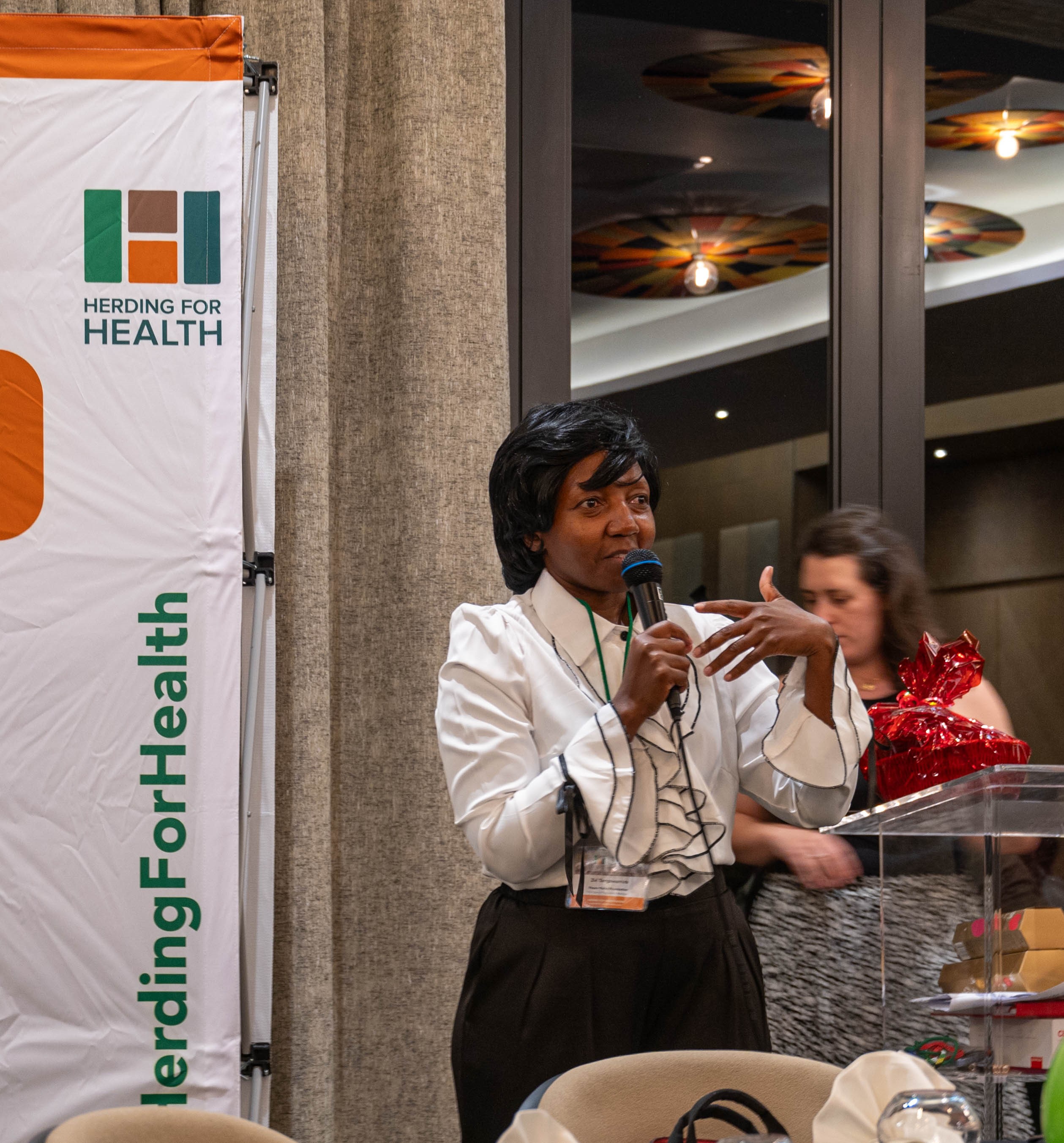
Stakeholders also discussed the program’s existing targets, which aimed to scale up these achievements. The discussions explored innovative solutions within the H4H framework, including leather production initiatives, mobile abattoirs for decentralized meat processing, and chili farming on former Boma sites, where improved soils led to higher yields. Another key topic was carbon sequestration, with the goal of removing ten million tonnes of carbon dioxide through improved livestock management. There was also growing interest in biodiversity credits to enhance conservation funding, aligning the initiative with international environmental agendas.
Participants learned how the Simalaha Conservancy in Zambia has recorded significant successes in livestock management, community engagement, and conservation under the Herding for Health (H4H) initiative implemented by Peace Parks International. According to Kabika Kumoyo, H4H Project Implementing Manager, the region has achieved zero stock theft cases, ensuring enhanced animal security. Livestock health has also improved, with no reported cases of Contagious Bovine PleuroPneumonia (CBPP), while calving rates have increased due to better management practices. Additionally, over 45,000 hectares of land are now under improved grazing management, benefiting 311 participating farmers. The project has directly supported 9,026 cattle, with 1,543 housed in mobile boma kraals and 7,483 in traditional kraals, contributing to sustainable rangeland utilization. Beyond livestock, the initiative has created 54 new jobs, strengthening local economic resilience. The project has also fostered community-driven water augmentation efforts and introduced fodder harvesting initiatives, empowering communities to secure sustainable livestock feed sources.
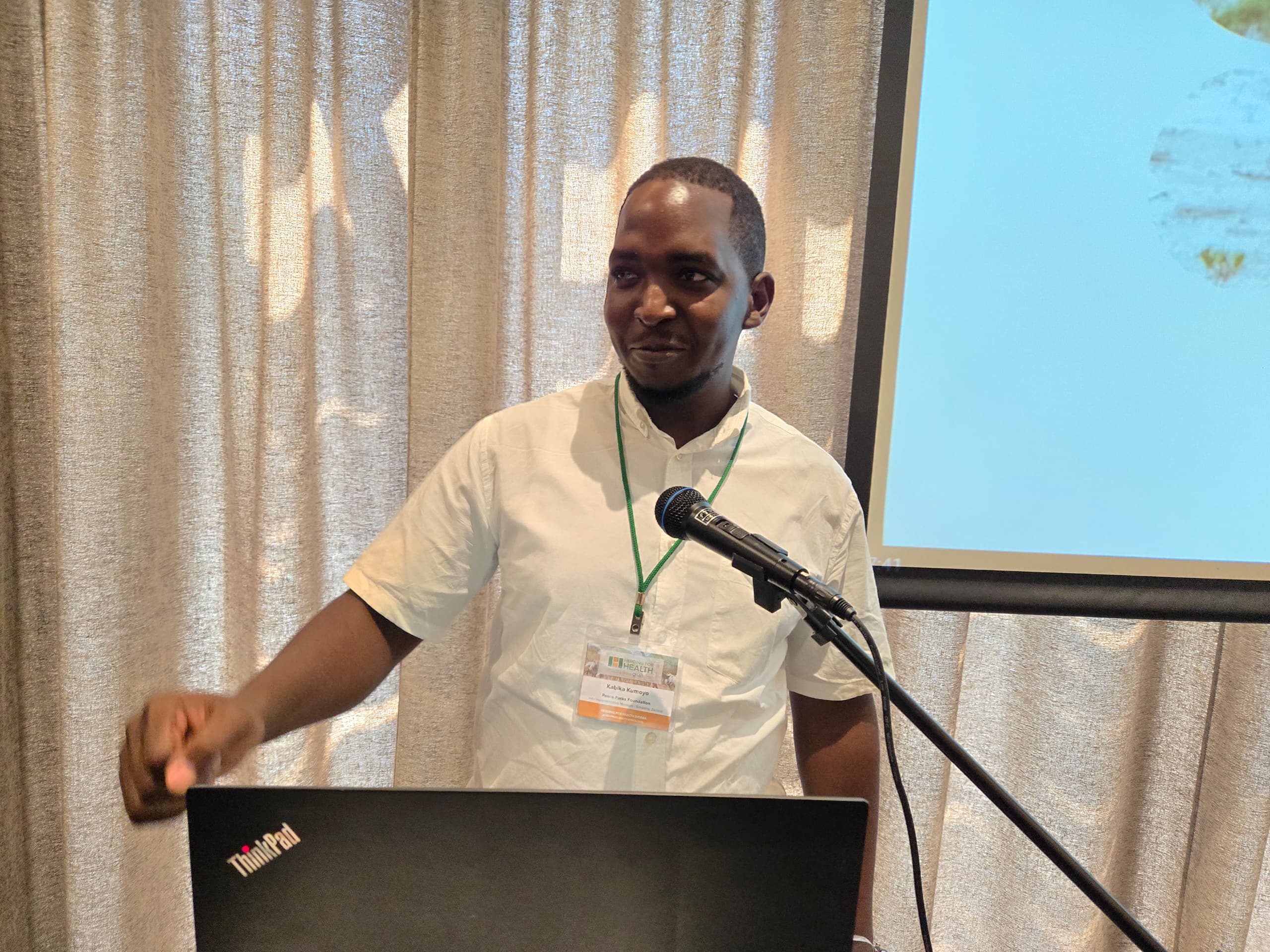
“These achievements demonstrate that when conservation and community needs align, real change happens,” said Kabika Kumoyo. “By securing livelihoods through sustainable livestock management, we are not only protecting wildlife but also ensuring a better future for local farmers.”
Mr. Manuel Nhanala, Implementing Manager at Maputo National Game Park, highlighted the park’s success in leather tanning and community empowerment. Grazing Area Committees have been trained invegetable tanning and are already processing and selling leather products, with some showcased at the Indaba. The committees are now formalizing their businesses through bank accounts and government registration, whilelivestock auctions are also underway.
Women’s groups have found new economic opportunities by growing chilies on former boma sites, boosting financial independence. "We are turning waste into wealth—creating jobs, businesses, and opportunities for the community," boasted Nhanala.
The Indaba also highlighted the role of women in sustainable farming, with H4H supporting female farmers in achieving better livelihoods while protecting biodiversity. A presenter from Namakwa emphasized the role of H4H and Gender Inclusion. She said, "Herding for Health empowers female farmers by improving livelihoods through sustainable farming practices that protect biodiversity."
Voices from the field underscored the program's real-world impact. Catherine Gertze (Namakwa Land) said, "Farming doesn’t change, but climate, environment, and farmer relationships do—forcing us to adapt.” John Les Adams said, "Restoration practices like rotational grazing are impactful, but generational respect among farmers has declined, affecting implementation."
Carbon markets and biodiversity credits were a key focus, with experts explaining how Meat Naturally offered better market opportunities for farmers. Ms. Natasha Reynolds from Conservation International discussed how carbon credits aligned with the Paris Agreement and operated within voluntary carbon markets. She outlined verification standards such as the Verified Carbon Standard (VCS) and noted the growing interest in nature-based carbon projects, which had created new financial opportunities. However, the discussion also highlighted challenges in the carbon market, particularly the decline in credit values since 2021 due to unregulated traders adopting compromised standards. "While carbon markets present a significant opportunity for sustainable financing, transparency and strong governance are crucial to maintaining their credibility," said Reynolds. "Ensuring that projects meet rigorous verification standards will be key to unlocking long-term benefits for both farmers and the environment.
Participants explored the Kruger2Canyons Rangelands and/or a Mobile Abattoir, gaining insights into sustainable grazing and ethical meat processing. The visit showcased innovative solutions that balance conservation and livelihoods, sparking discussions on the future of regenerative agriculture.
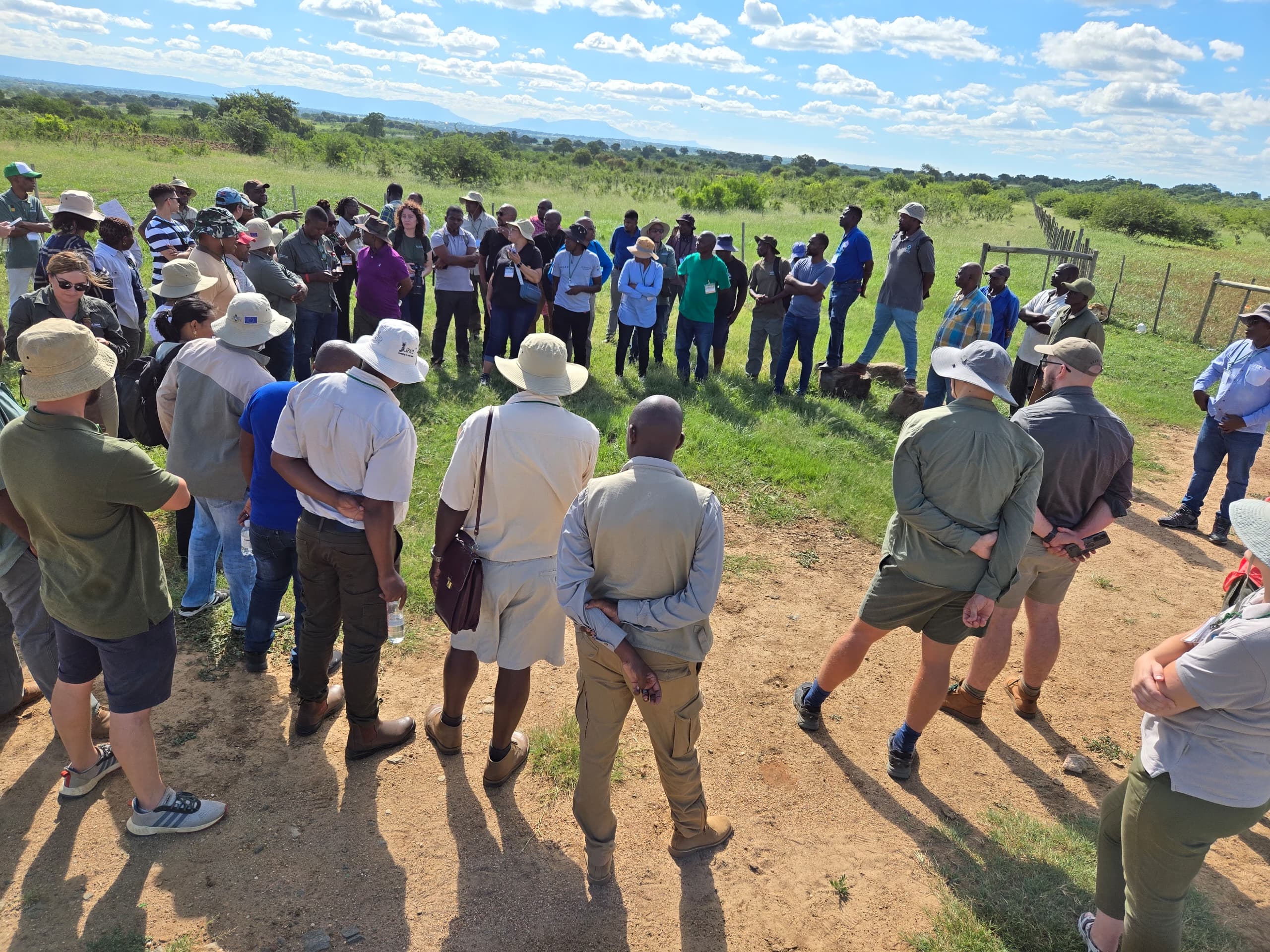
The over 200 participants including online participants left the meeting happy and acknowledged that Herding for Health's success was attributed to strong partnerships, collaboration, and joint resource mobilization. The program has made significant strides toward a sustainable and prosperous future for African pastoral communities by addressing climate change, improving rangeland health, and enhancing community resilience.





